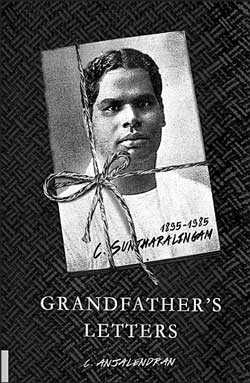Thursday Feb 19, 2026
Thursday Feb 19, 2026
Saturday, 28 September 2019 00:00 - - {{hitsCtrl.values.hits}}
 Lankan politics has become such a circus that the 2019 upcoming Presidential Election, while providing large-scale entertainment, holds out no hope of a brighter future – just the same old tired promises.
Lankan politics has become such a circus that the 2019 upcoming Presidential Election, while providing large-scale entertainment, holds out no hope of a brighter future – just the same old tired promises.
And yet, if we journey back to 1948, hope was present at the flag raising ceremony that ushered in independence. At that time, Lanka was in an enviable place. Then, as now, many aspired to be head of state but Lankans would never have imagined that their shining new democracy would degenerate to an undisguised kleptocracy.
What took us down this path? Was it only rampant communalism? And did the ‘parting of ways’ happen in the way Tarzie Vittachi enunciated in his ‘EMERGENCY ’58,’ or was it sooner? Certainly, the Gal Oya riots of 1956 shows that communal violence was brewing with political patronage barely a handful of years after self-rule and has been simmering happily ever since.
Questions give rise to other questions. From enviable regional strength, how did we suffer a seemingly irreversible economic downturn? Shortly after independence, the Rupee, which pegged in to gold prices was around 13.33 against the UK pound as opposed to 224 against the pound today.
Seventy years down the line, how do we analyse or even look for a credible perspective of events that marked our collective recent past, about the policies or policy makers who shaped our destiny to what we have become today?
For those interested in knowing our modern history, ‘GRANDFATHER’S LETTERS’ is a remarkable book compiled of a few of mathematician turned politician C. Sunetheralingam’s letters. A minority minister of the first cabinet of independent Ceylon, Suntheralingam was reputedly a brilliant man and accomplished mathematician, yet his letters to his grandchildren have nothing to do with maths.
Instead, ‘GRANDFATHER’S LETTERS’ takes a step in addressing our familiar story of attrition. In what are ostensibly innocuous letters to his numerous grandchildren, Suntheralingam fills them in on his childhood background; his trials, tribulations and the normal day to day problems he encountered. He relates how he excelled at studies, became professor of Mathematics at the University of Ceylon and then a Minister in Ceylon’s first independent cabinet.
 Very soon however, these letters take on the air of a political treatise as he expounds on the workings of government and behind the scenes political action that serve as an interesting witness to that era of transition from colonial subjects to free citizens.
Very soon however, these letters take on the air of a political treatise as he expounds on the workings of government and behind the scenes political action that serve as an interesting witness to that era of transition from colonial subjects to free citizens.
Of course, he has an axe to grind, an opinion to put across and his views may not be unbiased or perfectly objective. A theme that overwhelms is that disappointed by the actions or reactions of successive Sinhala governments, Suntheralingam was among the first intellectuals who wanted Tamils to stand up for their rights or force the issue by calling for a fragmented state.
As with any book that offers a personal opinion on past events, you will not find studied answers to all of our problems here. However, if you ever wondered why we engaged in a 25-year civil war, you will see the rise and nurturing of communalism and divisive politics that resulted in a disenchanted minority population. From there, no major analysis is necessary to understand how opportunism and thuggery soon made a travesty of democracy.
Visit Perera-Hussein at the Colombo book fair for this and other fine books.
(Sam Perera is a partner of the Perera-Hussein Publishing House which publishes culturally relevant stories by emerging and established Lankan and regional authors – for a primarily Lankan audience. Ph books are available everywhere books are sold and through www.pererahussein.com.)
GRANDFATHER’S LETTERS
By C. Suntheralingam w/Foreword by C. Anjalendran
Sailfish, an imprint of Perera-Hussein
Rs. 1,000 in all bookshops and www.pererahussein.com